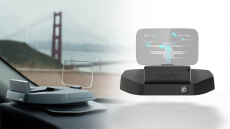Paper or plasma – if you’re a reader, this question has plagued you at least once in your life. But which is better?
The physicality
There is something appealing about the weight of a paper book. It’s a sensory experience, the textured jacket, the smell, the soft pages, and that slight rustling sound as you turn a page – it’s all physically pleasing. “It feels good,” states William Xu, a fourth year business student at the University of British Columbia and avid reader. “Paper books just feel real.”
Kindles and other e-readers lack this warmth. After staring at computer screens for the majority of the day, whether you’re at work or school, it doesn’t sound very tempting to come back and read for pleasure on yet another screen. Sabrina Pannu, a staff accountant at EY and fellow bibliophile, disagrees. “You don’t feel like you’re reading a screen like on your smartphone or something. It’s like paper; it’s comfortable, especially if you have a newer version of Kindle. It’s improved a lot.”
While there is no doubt Kindles are improving, what about memories? Books can be physical reminders of your life and take you back to the moment you read them. That old worn-out copy of Harry Potter with spells scribbled in the margins takes you back to your carefree middle school years. That mud-stained mystery novel takes you back to that beach vacation you took with the family. Kindles can’t do that – each book is exactly the same.
The convenience
Kindle e-readers are light, compact and easy to carry. You can slip it into your backpack, purse or briefcase without a second thought for space. This is especially convenient for those who enjoy reading on public transit or can’t imagine setting out on a vacation without a book or two. “It’s like having a lightweight, portable library with you rather than lugging around a huge stack of books,” says Sabrina.
Paper books however don’t enjoy the same convenience. Perhaps paperbacks are more convenient on the go, but the weight still adds up. Die-hard paper book advocates don’t seem to be bothered by this. According to William, “Yes, it can get heavy, depending on the books. But knowledge has weight.” In addition, with paper books, you don’t have to worry about battery levels or remember to charge them.
But on the other hand, it’s easier to buy books on Kindle – all you need is a Wi-Fi connection. “The only thing is that a lot of books don’t have e-versions,” adds Sabrina. “But I’m all for the portability and convenience.”

The cost
The concentration
Most people, even Kindle loyalists, agree that when it comes to deep reading, they concentrate best with a paper book. “It’s definitely preferable to have a paper copy if I’m studying,” admits Sabrina. There have been numerous small studies that suggest that reading on paper instead of a screen is better for memory retention and focus. Anne Mangen from Norway’s Stavanger University conducted a research that showed readers retain plot elements better when reading on paper instead of Kindle. If you’re reading a ‘heavier’ or more challenging book and want to retain it, it might be best to stick to paper.
Then there’s also the fact that it’s easier to get distracted on a Kindle, especially on those that allow you to browse the Internet. It’s hard to resist that temptation of checking your email, browsing content on websites or reading the headlines.
So which is better?
At the end of the day, it’s hard to say. One can argue the pros and cons of paper books vs. e-books till you’re blue in the face but the preference is extremely personal. While some remain firmly in one camp or the other, many readers embrace both – they have a Kindle but they also buy paper books. No matter what you choose, happy reading!

